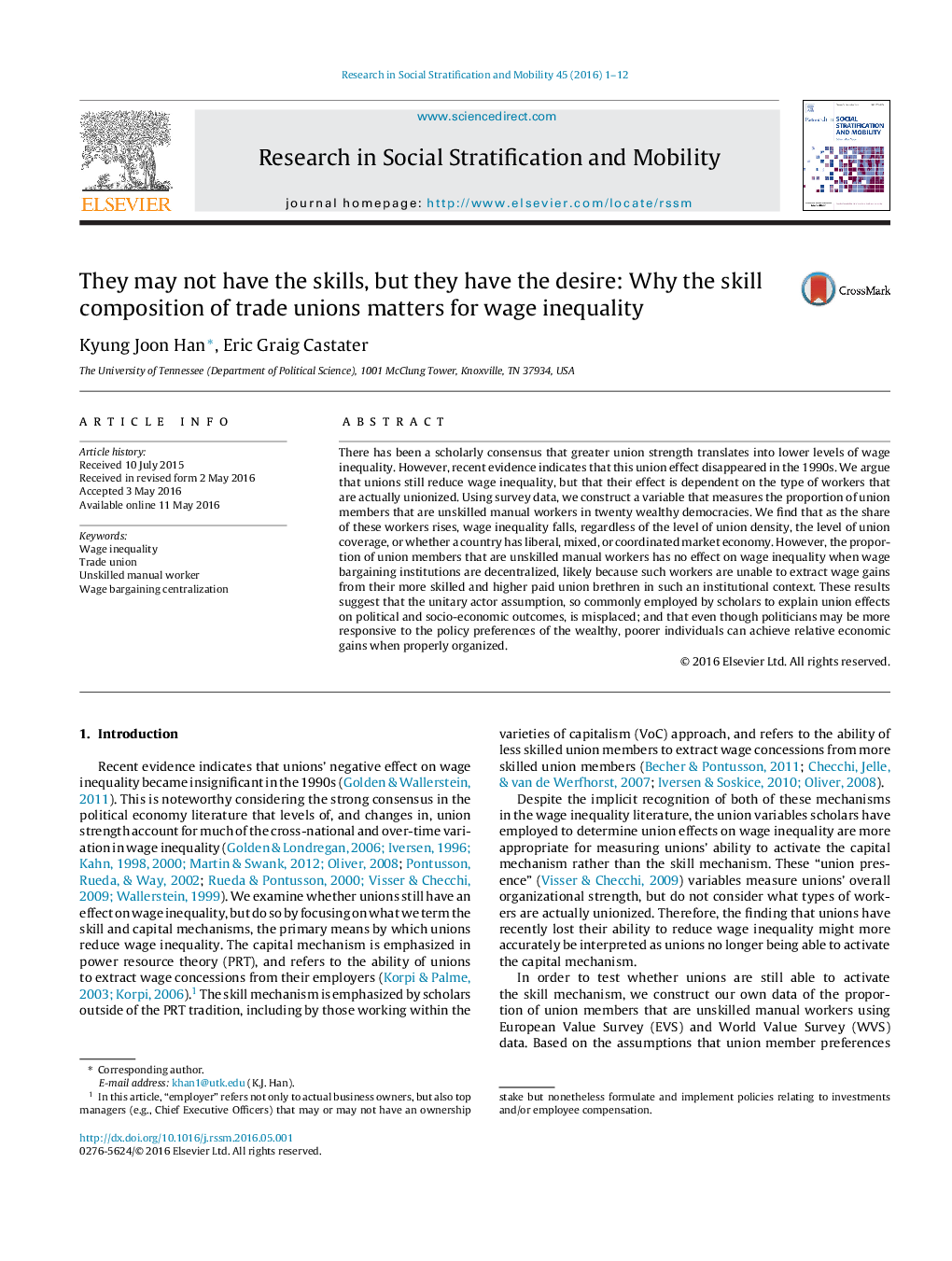| Article ID | Journal | Published Year | Pages | File Type |
|---|---|---|---|---|
| 999509 | Research in Social Stratification and Mobility | 2016 | 12 Pages |
•Standard measures of trade union presence indicate that unions stopped having a wage inequality reducing effect in the 1990s.•We construct a variable of the proportion of unskilled manual workers in unions.•Unions that represent many unskilled workers reduce wage inequality regardless of the level of union density, the level of union coverage, or whether a country has liberal, mixed, or coordinated market economy; but not when wage bargaining institutions are decentralized.•This result suggests that union preferences towards inequality are not homogenous.•This result also implies that the poor can still achieve relative economic gains when properly organized.
There has been a scholarly consensus that greater union strength translates into lower levels of wage inequality. However, recent evidence indicates that this union effect disappeared in the 1990s. We argue that unions still reduce wage inequality, but that their effect is dependent on the type of workers that are actually unionized. Using survey data, we construct a variable that measures the proportion of union members that are unskilled manual workers in twenty wealthy democracies. We find that as the share of these workers rises, wage inequality falls, regardless of the level of union density, the level of union coverage, or whether a country has liberal, mixed, or coordinated market economy. However, the proportion of union members that are unskilled manual workers has no effect on wage inequality when wage bargaining institutions are decentralized, likely because such workers are unable to extract wage gains from their more skilled and higher paid union brethren in such an institutional context. These results suggest that the unitary actor assumption, so commonly employed by scholars to explain union effects on political and socio-economic outcomes, is misplaced; and that even though politicians may be more responsive to the policy preferences of the wealthy, poorer individuals can achieve relative economic gains when properly organized.
